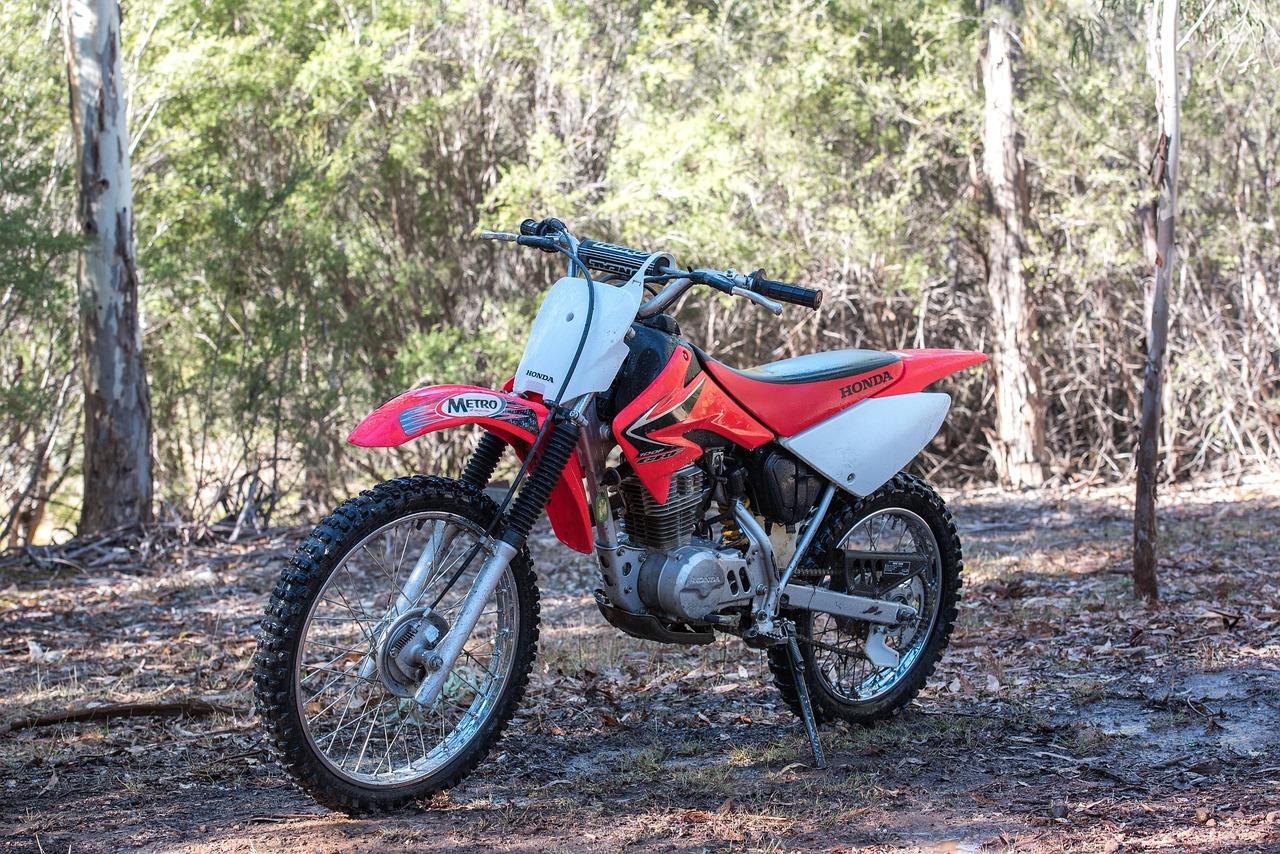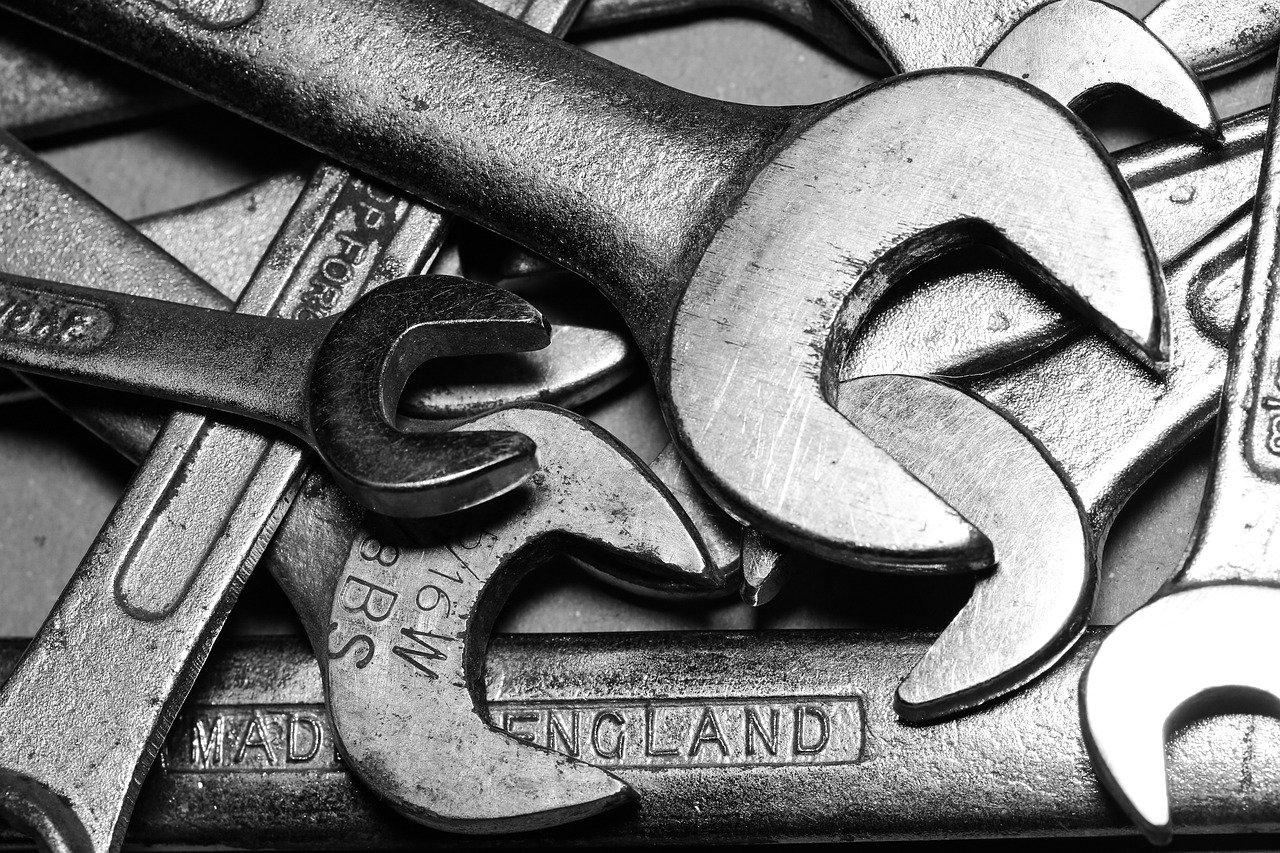The longevity of a Honda Accord is a topic of great interest for current and prospective owners alike. Known for its reliability and durability, the Honda Accord can serve as a dependable vehicle for many years. This article delves into the factors that influence the lifespan of Honda Accords, maintenance tips to extend their life, and expert insights that can help you understand what to expect from your vehicle.
The average lifespan of a Honda Accord typically ranges from 200,000 to 300,000 miles with proper care. Many owners report their vehicles lasting well over 15 years, depending on driving habits and maintenance practices.
- Driving Habits: Gentle driving can significantly enhance lifespan.
- Regular Maintenance: Adhering to the manufacturer’s maintenance schedule is crucial.
- Environmental Conditions: Factors such as climate and road conditions play a role.
Aggressive driving, including rapid acceleration and hard braking, can lead to premature wear and tear. Frequent short trips can also be detrimental, as the engine doesn’t reach optimal operating temperature, leading to increased engine wear. To promote longevity, consider adopting a more gentle driving style.
Consistent maintenance is key to extending the life of your Honda Accord. Here are some essential tips:
- Regular Oil Changes: Changing the oil every 5,000 to 7,500 miles helps keep the engine lubricated and running efficiently.
- Tire Care: Regularly checking tire pressure, rotating tires, and ensuring proper alignment can enhance both safety and fuel efficiency.
- Brake Inspections: Regularly checking and replacing brake pads can prevent costly repairs down the line.
When compared to other vehicles in its class, the Honda Accord consistently ranks high in terms of durability. Many drivers find that Honda vehicles often outlast their competitors, making them a wise investment.
The Honda Accord has received high reliability ratings from organizations such as J.D. Power and Consumer Reports. These ratings reflect the vehicle’s ability to withstand the test of time, making it a popular choice among long-term car owners.
Implementing specific maintenance practices can significantly enhance your Honda Accord’s longevity:
- Fluid Checks: Regularly checking and replacing fluids, such as coolant and transmission fluid, can prevent serious issues.
- Battery Maintenance: Keeping the battery terminals clean and checking the battery’s health can prevent unexpected breakdowns.
Environmental factors can impact your Honda Accord’s lifespan. For instance:
- Harsh Weather: Extreme temperatures can adversely affect battery life and engine performance.
- Potholes and Rough Roads: Driving on poorly maintained roads can lead to increased wear on suspension components.
While Honda Accords are known for their reliability, some common issues may arise:
- Transmission Problems: Older models may experience transmission issues. Regular fluid changes can help mitigate these risks.
- Electrical Failures: Aging electrical systems can lead to battery failures and wiring issues.
Maintaining your Honda Accord not only extends its lifespan but also enhances its resale value. Here are some tips:
- Document Maintenance: Keeping detailed records of all maintenance and repairs can instill confidence in potential buyers.
- Invest in Upgrades: Quality upgrades, such as new tires or a sound system, can make your vehicle more attractive to buyers.
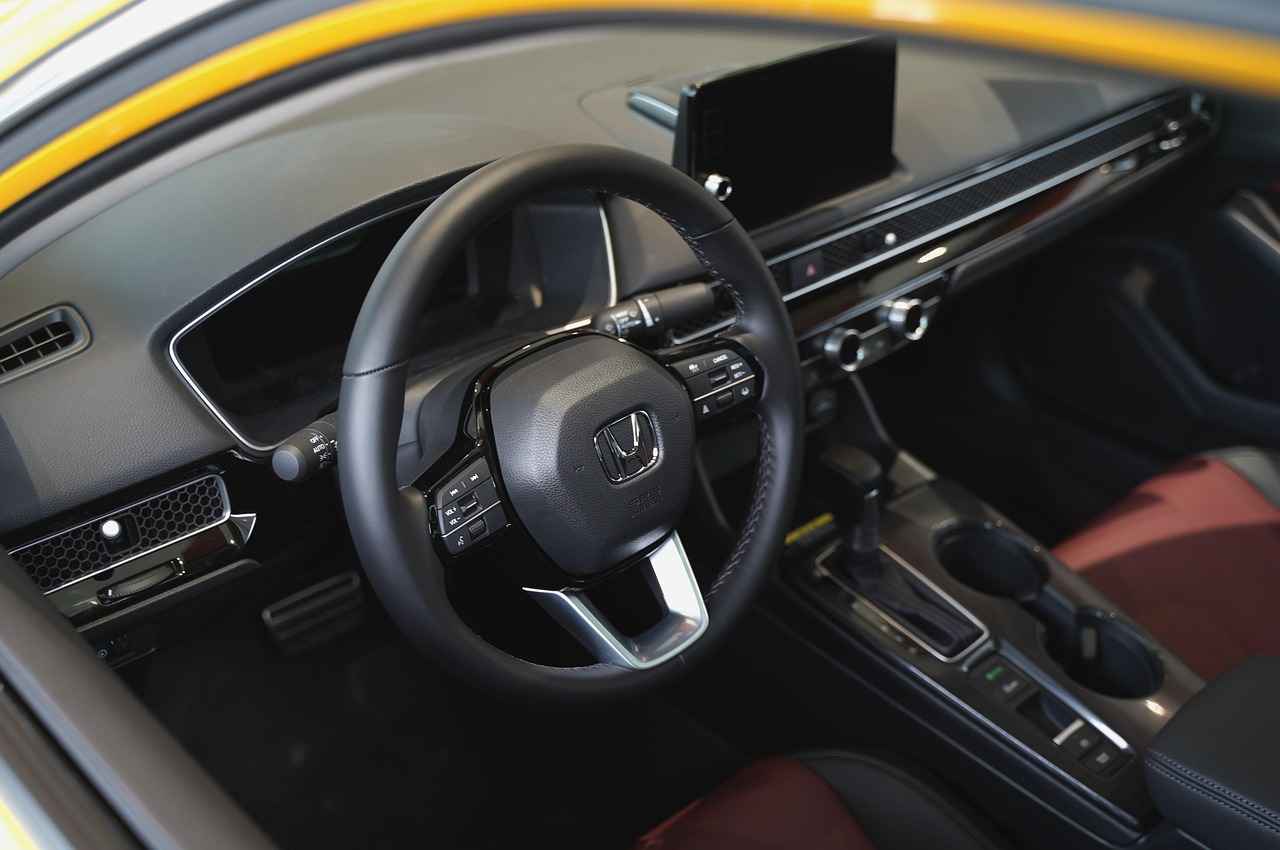
What is the Average Lifespan of a Honda Accord?
The Honda Accord is renowned for its reliability and longevity, making it a popular choice among car owners. When considering the average lifespan of a Honda Accord, various factors come into play that can significantly influence how long the vehicle lasts. While many owners report that their Accords can reach an impressive 200,000 miles or more, the actual lifespan can vary based on several key elements.
The average lifespan of a Honda Accord can range significantly based on usage, maintenance, and driving conditions. Typically, owners report an average lifespan of 200,000 miles or more. However, with proper care and attention, some owners have even reached upwards of 300,000 miles without major issues. This impressive longevity is a testament to Honda’s engineering and commitment to quality.
Several factors can impact the lifespan of a Honda Accord:
- Driving Habits: Gentle driving can reduce wear and tear, while aggressive driving can lead to premature aging of components.
- Regular Maintenance: Adhering to the manufacturer’s maintenance schedule is crucial. Regular oil changes, brake checks, and tire rotations can extend the life of your vehicle.
- Environmental Conditions: Factors such as climate and road quality can greatly affect wear. For instance, driving in extreme weather or on poorly maintained roads can lead to increased deterioration.
Aggressive driving, which includes rapid acceleration and hard braking, can significantly shorten the lifespan of any vehicle, including the Honda Accord. Frequent short trips can also be detrimental, as the engine may not reach optimal operating temperature, leading to increased wear. Conversely, adopting a more conservative driving style can help prolong your vehicle’s life.
Implementing effective maintenance practices is essential for maximizing the lifespan of your Honda Accord. Here are some key tips:
- Regular Oil Changes: Changing the oil at recommended intervals helps maintain engine health and efficiency.
- Fluid Checks: Regularly inspecting and replacing fluids (coolant, brake fluid, transmission fluid) can prevent serious issues.
- Tire Maintenance: Keeping tires properly inflated and rotated can enhance fuel efficiency and extend tire life.
When compared to other vehicles in its class, the Honda Accord often stands out for its durability. Many owners find that Honda models frequently outlast their competitors, thanks to their robust construction and dependable engineering.
The Honda Accord consistently receives high reliability ratings from organizations like J.D. Power and Consumer Reports. These ratings reflect the model’s reputation for durability and performance over time, making it a sound investment for long-term ownership.
Despite its reputation for reliability, some common issues may arise as the vehicle ages:
- Transmission Problems: Some models may experience transmission issues, which can often be mitigated with regular maintenance.
- Electrical System Failures: Older models may face electrical challenges, including battery failures and wiring issues.
In summary, the average lifespan of a Honda Accord is impressive, but it greatly depends on various factors including driving habits, maintenance practices, and environmental conditions. By understanding and addressing these elements, owners can ensure that their Honda Accord remains a reliable vehicle for many years.

What Factors Influence the Longevity of a Honda Accord?
The longevity of a Honda Accord is influenced by several key factors that every owner should consider. Understanding these elements not only helps in maximizing the lifespan of your vehicle but also enhances its performance and reliability. Below, we delve into the various factors that contribute to the durability of a Honda Accord.
Several factors can significantly affect how long a Honda Accord lasts, including driving habits, regular maintenance, and environmental conditions. By recognizing these elements, owners can take proactive measures to extend their vehicle’s lifespan.
Your driving style plays a crucial role in the wear and tear of your vehicle. Aggressive driving, which includes rapid acceleration and hard braking, can lead to increased stress on the engine and brakes, reducing the overall lifespan of your Accord. Additionally, frequent short trips can prevent the engine from reaching its optimal operating temperature, leading to incomplete combustion and increased carbon buildup.
On the other hand, smooth and gentle driving can help maintain engine health and improve fuel efficiency. Being mindful of how you drive can make a significant difference in the longevity of your Honda Accord.
Adhering to a stringent maintenance schedule is vital for ensuring that your Honda Accord remains in peak condition. Regular oil changes are essential in preventing engine wear, as clean oil lubricates engine components effectively. Timely repairs of any issues, no matter how minor, can prevent more significant problems down the line.
Furthermore, routine inspections can help catch potential issues early, allowing for corrective actions before they escalate. Following the manufacturer’s maintenance guidelines is crucial in extending the lifespan of your vehicle.
The environment in which you drive your Honda Accord can also impact its longevity. Harsh weather conditions, such as extreme heat or cold, can affect battery performance and engine efficiency. For example, hot climates can lead to overheating, while cold weather may result in battery failures.
Moreover, road conditions play a significant role. Driving on poorly maintained roads can lead to increased wear on tires and suspension components. Being aware of your driving environment and taking preventive measures can help mitigate these effects.
- Regular Oil Changes: Follow the recommended intervals for oil changes to keep your engine healthy.
- Fluid Checks: Regularly check and top off fluids such as brake fluid, coolant, and transmission fluid.
- Tire Maintenance: Ensure proper tire pressure and alignment to enhance fuel efficiency and tire lifespan.
- Brake Inspections: Regularly inspect and replace brake pads to ensure safety and performance.
By understanding and addressing these factors, Honda Accord owners can significantly enhance their vehicle’s lifespan. Implementing good driving habits, maintaining a strict maintenance schedule, and being mindful of environmental conditions are all essential steps in ensuring that your Honda Accord serves you well for many years to come.
Driving Habits and Their Impact
Understanding the impact of driving habits on the longevity of your Honda Accord is crucial for maximizing its lifespan. Certain behaviors behind the wheel can significantly contribute to the wear and tear of your vehicle, ultimately affecting its performance and reliability.
Aggressive driving is one of the primary factors that can lead to premature wear. This includes rapid acceleration, hard braking, and excessive speeding. Such behaviors not only strain the engine but also put additional pressure on the brakes and tires, leading to more frequent replacements and repairs. According to studies, aggressive drivers can reduce their vehicle’s lifespan by thousands of miles compared to those who drive more conservatively.
Frequent short trips can also take a toll on your Honda Accord. When you drive short distances, the engine may not reach its optimal operating temperature, leading to incomplete combustion and increased fuel residue buildup. This can result in higher emissions and reduced fuel efficiency. Over time, these factors can contribute to engine problems and overall decreased performance. It’s advisable to combine short trips when possible or consider alternative modes of transportation for brief errands.
Additionally, carrying heavy loads consistently can lead to increased strain on the vehicle’s suspension and brakes. Exceeding the manufacturer’s recommended weight limit can cause significant damage over time. It’s important to be mindful of your vehicle’s load capacity and avoid overloading whenever possible.
- Tip 1: Adopt a smooth driving style. Gradual acceleration and braking can enhance fuel efficiency and reduce wear.
- Tip 2: Plan longer trips when feasible to allow the engine to operate efficiently.
- Tip 3: Be aware of your load limits to prevent unnecessary strain on your vehicle.
Moreover, environmental factors such as road conditions and weather can exacerbate the effects of driving habits. For instance, driving on pothole-ridden roads can lead to suspension issues, while harsh weather can affect tire performance. Therefore, it’s essential to be mindful of your surroundings and adjust your driving accordingly.
In conclusion, adopting better driving habits can significantly enhance the longevity of your Honda Accord. By driving smoothly, minimizing short trips, and respecting load limits, you can help ensure your vehicle remains in excellent condition for years to come. Regularly assessing and adjusting your driving style is a proactive way to invest in the health and longevity of your vehicle.
Maintenance Practices for Longevity
Maintaining your Honda Accord is essential for ensuring its longevity and reliability. Regular oil changes, timely repairs, and routine inspections play a vital role in keeping your vehicle in top condition. By adhering to the manufacturer’s maintenance schedule, you can significantly extend the lifespan of your Accord, potentially reaching over 200,000 miles with proper care.
Oil changes are one of the most critical aspects of vehicle maintenance. Engine oil lubricates the moving parts of your engine, reducing friction and preventing overheating. Over time, oil can become contaminated with dirt and debris, losing its effectiveness. Changing your oil regularly helps maintain optimal engine performance and prevents costly repairs down the line.
Addressing issues as they arise is crucial for maintaining your Honda Accord. Ignoring warning signs such as unusual noises, dashboard alerts, or performance changes can lead to more severe problems. For instance, a minor brake issue can escalate into a complete brake failure if not addressed promptly. Timely repairs not only ensure your safety but also contribute to the vehicle’s overall longevity.
Routine inspections allow you to catch potential problems before they become serious. During these inspections, mechanics check critical components such as brakes, tires, and fluid levels. Following a regular inspection schedule can help identify wear and tear early, allowing for preventative maintenance that can save you money and extend the life of your Accord.
Every Honda Accord comes with a maintenance schedule outlined in the owner’s manual. This schedule includes recommended intervals for oil changes, tire rotations, and other essential services. Following this schedule is crucial, as it is designed to keep your vehicle running smoothly and efficiently. By adhering to these guidelines, you not only enhance the performance of your Accord but also maintain its resale value.
- Tire Care: Regularly check tire pressure and tread depth. Rotate tires every 5,000 to 7,500 miles to ensure even wear.
- Fluid Levels: Regularly check and top off fluids such as coolant, brake fluid, and transmission fluid to ensure optimal performance.
- Battery Maintenance: Inspect the battery regularly for corrosion and ensure it is securely mounted. Replace it every 3 to 5 years.
Your driving habits significantly impact your vehicle’s maintenance needs. Aggressive driving, such as rapid acceleration and hard braking, can lead to increased wear on your engine and brakes. Additionally, frequent short trips may prevent your engine from reaching optimal operating temperature, leading to oil sludge buildup. By adopting a smoother driving style, you can reduce the frequency of repairs and maintenance.
The environment in which you drive also plays a role in your Accord’s longevity. Harsh weather conditions, such as extreme heat or cold, can stress your vehicle’s components. For example, cold weather can affect battery performance, while hot weather can lead to overheating. Being mindful of these factors and taking preventive measures can help mitigate their effects on your vehicle.
In conclusion, the longevity of your Honda Accord hinges on a combination of regular maintenance practices, timely repairs, and mindful driving. By prioritizing these aspects, you can enjoy a reliable vehicle that serves you well for many years.
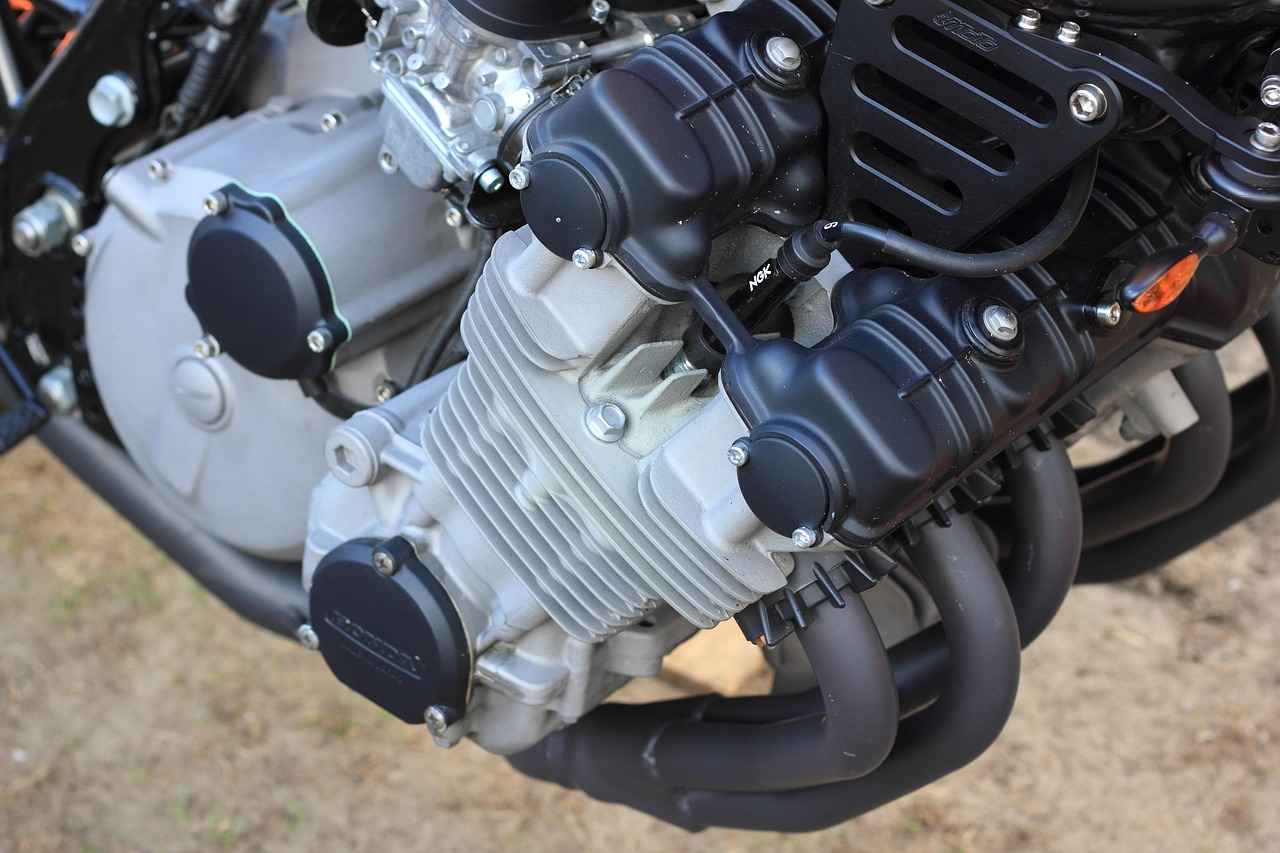
How Does Honda Accord Compare to Other Vehicles?
The Honda Accord has long been a popular choice among midsize sedans, and its reputation for longevity sets it apart from many competitors. When comparing the Honda Accord to other vehicles in its class, it becomes evident that it possesses a distinct competitive edge, particularly in terms of durability and reliability. This article delves into the reasons why the Honda Accord often outlasts its rivals, highlighting key factors that contribute to its impressive lifespan.
One of the primary reasons the Honda Accord is known for its longevity is its engineering quality. Honda has a long-standing reputation for producing vehicles that are built to last. Many owners report that their Accords not only reach 200,000 miles but often exceed that mark with proper care.
When looking at reliability ratings, the Honda Accord consistently ranks high on lists from reputable sources like Consumer Reports and J.D. Power. These organizations evaluate vehicles based on owner feedback and performance metrics, and the Accord often emerges as a top contender in its class. Such accolades reinforce the notion that Honda vehicles are designed with longevity in mind.
Long-term ownership experiences further solidify the Honda Accord’s reputation. Many owners express satisfaction with minimal issues over the years, which is a significant factor when comparing vehicles. The resale value of Honda Accords is also noteworthy; they tend to retain their value well, a testament to their durability.
While the Honda Accord is built for longevity, regular maintenance plays a crucial role in extending its lifespan. Owners who adhere to the manufacturer’s maintenance schedule often report fewer issues and a longer-lasting vehicle. Simple practices, such as regular oil changes and timely repairs, can significantly enhance the durability of the Accord.
The way a vehicle is driven can also influence its lifespan. For instance, aggressive driving, such as rapid acceleration and hard braking, can lead to increased wear and tear. In contrast, smooth driving habits can help preserve the engine and other vital components, allowing the Honda Accord to last longer than many of its competitors.
Environmental conditions also impact vehicle longevity. For example, cars driven in extreme climates or on poorly maintained roads may experience more wear. However, the Honda Accord’s robust design helps it withstand various environmental challenges better than many of its rivals.
When comparing the Honda Accord to other vehicles, it’s essential to consider common issues faced by competitors. Many rival midsize sedans may experience significant problems with their transmissions or electrical systems as they age. In contrast, the Honda Accord is generally regarded as more reliable, with fewer reported issues, thereby enhancing its longevity.
In summary, the Honda Accord stands out in its class due to its remarkable longevity and reliability. Factors such as superior engineering, high reliability ratings, positive owner experiences, and the impact of maintenance and driving habits all contribute to its competitive edge. For anyone in the market for a midsize sedan, the Honda Accord remains a top choice for those seeking a vehicle that can go the distance.
Reliability Ratings of Honda Accord
The Honda Accord has long been recognized for its exceptional reliability, making it a popular choice among car buyers. This reputation is not just a coincidence; it is backed by extensive evaluations from reputable organizations like J.D. Power and Consumer Reports. These ratings consistently highlight the Accord’s ability to perform well over time, showcasing its durability and dependability.
The Honda Accord’s impressive reliability ratings stem from several key factors:
- Quality Engineering: Honda employs rigorous engineering standards to ensure that each Accord is built to last. This attention to detail results in fewer mechanical issues over the vehicle’s lifespan.
- Robust Materials: The materials used in the construction of the Accord are designed to withstand wear and tear, contributing to the vehicle’s longevity.
- Positive Owner Feedback: Many owners report minimal issues with their Accords, which significantly boosts the model’s reliability ratings.
High reliability ratings can significantly enhance the ownership experience for Honda Accord drivers. Here’s how:
- Peace of Mind: Knowing that your vehicle is reliable allows you to drive with confidence, reducing anxiety about potential breakdowns.
- Lower Maintenance Costs: Reliable vehicles often incur fewer repair costs, which can save owners money in the long run.
- Higher Resale Value: A reliable car like the Honda Accord typically retains its value better than less reliable competitors, making it a smart investment.
Industry experts frequently commend the Honda Accord for its reliability. According to Consumer Reports, the Accord is often listed among the top vehicles in its class for reliability, making it a recommended choice for families and individuals alike. Additionally, J.D. Power consistently ranks the Accord highly in their annual vehicle dependability studies, further solidifying its reputation.
Investing in a reliable vehicle like the Honda Accord offers numerous long-term benefits:
- Durability: A reliable car is designed to last, often exceeding 200,000 miles with proper maintenance.
- Safety: Reliable vehicles typically have fewer safety recalls and issues, providing peace of mind for drivers and passengers.
- Fuel Efficiency: Well-maintained, reliable cars often perform better in terms of fuel efficiency, leading to savings at the pump.
To ensure that your Honda Accord remains reliable over the years, consider the following maintenance tips:
- Regular Maintenance: Adhere to the manufacturer’s recommended maintenance schedule, including oil changes and inspections.
- Use Quality Parts: When replacing parts, opt for genuine Honda parts or high-quality alternatives to maintain performance.
- Stay Informed: Keep up with any recalls or service bulletins related to your vehicle model to address issues proactively.
In summary, the Honda Accord’s reputation for reliability is well-deserved, supported by high ratings from trusted organizations. By understanding the factors that contribute to its reliability and implementing proper maintenance practices, owners can enjoy a dependable vehicle for many years.
Long-Term Ownership Experiences
When it comes to long-term ownership experiences, many Honda Accord owners have shared their positive feedback, highlighting several key factors that contribute to their satisfaction. This article delves into the reasons why Honda Accord owners often report minimal issues and a high resale value, which are indicative of the model’s durability and reliability.
One of the most frequently mentioned aspects of owning a Honda Accord is its dependability. Owners often praise the vehicle’s ability to perform consistently well over the years, with many reporting that their cars have surpassed 200,000 miles with minimal mechanical issues. This level of reliability is not just a coincidence; it stems from Honda’s commitment to engineering vehicles that are built to last.
Honda Accord owners report fewer unexpected repairs compared to other vehicles in its class. Regular maintenance practices, such as timely oil changes and routine inspections, help keep the vehicle in optimal condition. Owners who adhere to the manufacturer’s maintenance schedule often find that their cars require less frequent repairs, allowing them to enjoy a hassle-free ownership experience.
Another significant benefit of owning a Honda Accord is its high resale value. Many owners are pleasantly surprised by how well their vehicles hold their value compared to competitors. This is largely due to the Accord’s reputation for reliability and durability, making it a sought-after option in the used car market. According to automotive experts, the Honda Accord consistently ranks among the top vehicles for resale value, which is a testament to its long-term performance.
Honda Accord owners often benefit from a strong community of enthusiasts and support networks. Online forums and social media groups allow owners to share their experiences, tips, and maintenance advice. This sense of community can enhance the ownership experience, as owners feel connected to others who appreciate the same vehicle.
Automotive experts frequently highlight the Honda Accord’s engineering excellence as a key factor in its longevity. The vehicle’s robust construction and quality materials contribute to its ability to withstand the test of time. Additionally, Honda’s commitment to innovation ensures that newer models come equipped with advanced technology that enhances both performance and safety.
- John, a long-time owner: “I’ve had my Honda Accord for over a decade, and it’s still running like new. I’ve only had to do regular maintenance, and it’s been a fantastic investment.”
- Sarah, a recent seller: “I was amazed at how much I got for my Accord when I sold it. It held its value better than I expected, and I had very few issues during my ownership.”
- Mike, a mechanic: “From a professional standpoint, Honda Accords are some of the easiest cars to work on, and they tend to need less frequent repairs than many other brands.”
In conclusion, the long-term ownership experiences of Honda Accord owners speak volumes about the vehicle’s durability and reliability. With minimal maintenance issues and a high resale value, it’s no wonder that many choose to invest in this model. Whether you’re a current owner or considering purchasing a Honda Accord, understanding these factors can help you appreciate the benefits of this renowned vehicle.

What Maintenance Tips Can Extend Your Honda Accord’s Lifespan?
Maintaining your Honda Accord is crucial for ensuring its longevity and performance. By implementing specific maintenance tips, you can significantly extend the lifespan of your vehicle. These practices not only keep your car running smoothly but also enhance its resale value and reliability over the years.
To keep your Honda Accord in optimal condition, consider the following essential maintenance tips:
- Regular Oil Changes: One of the most important maintenance tasks is changing the oil at regular intervals. This practice helps maintain engine health by preventing sludge buildup and reducing wear. Following the manufacturer’s recommendations for oil change frequency can help prolong the lifespan of your engine.
- Tire Care and Maintenance: Proper tire maintenance is essential for safety and fuel efficiency. Regularly check tire pressure, rotate tires, and ensure proper alignment. Well-maintained tires improve handling and can enhance the overall lifespan of your vehicle.
- Brake System Inspection: Regular inspection of your brake system is vital. Worn brake pads can lead to more significant issues if not addressed promptly. Replacing brake pads and checking brake fluid levels can ensure your safety and the longevity of the braking system.
- Fluid Checks: Apart from engine oil, regularly checking and replacing other fluids such as coolant, transmission fluid, and brake fluid is essential. Each fluid plays a crucial role in the performance and safety of your vehicle.
- Battery Maintenance: A well-maintained battery is vital for starting your vehicle and powering electrical systems. Regularly check the battery terminals for corrosion and ensure that the battery is securely mounted. Replacing the battery every few years can prevent unexpected breakdowns.
- Routine Inspections: Conducting routine inspections of your vehicle can catch potential issues before they become significant problems. This includes checking belts, hoses, and other components for wear and tear.
Regular maintenance is not just about keeping your vehicle looking good; it’s about ensuring its reliability and performance. A well-maintained Honda Accord can easily surpass the 200,000-mile mark, providing you with years of dependable service. Furthermore, consistent maintenance can help you avoid costly repairs in the long run.
Your driving habits can significantly impact the maintenance needs of your Honda Accord. Aggressive driving, frequent short trips, and carrying heavy loads can lead to increased wear and tear. Adopting a more gentle driving style and avoiding heavy loads can help reduce the strain on your vehicle, ultimately extending its lifespan.
Environmental conditions also affect your vehicle’s longevity. Harsh weather conditions, such as extreme heat or cold, can impact battery life and engine performance. Additionally, driving on rough or poorly maintained roads can lead to increased wear on suspension and tires. Being mindful of these factors and taking preventive measures, such as using protective coatings or regular washes, can help mitigate their effects.
Keeping detailed records of all maintenance and repairs is crucial for tracking the health of your Honda Accord. Documenting services can provide potential buyers with confidence in your vehicle’s condition, enhancing its resale value. Consider using a dedicated app or a simple notebook to track dates, services performed, and any issues that arise.
In conclusion, by following these maintenance tips and being proactive about your Honda Accord’s care, you can significantly extend its lifespan and ensure it remains a reliable vehicle for years to come.
Regular Oil Changes
Maintaining the health of your engine is crucial for the longevity of your vehicle, and one of the most effective methods to achieve this is through . This practice is not just about keeping the engine lubricated; it plays a significant role in preventing wear and tear, ensuring optimal performance, and ultimately extending the lifespan of your vehicle.
Changing the oil in your Honda Accord at recommended intervals is essential for several reasons:
- Engine Protection: Fresh oil helps to reduce friction between engine components, which minimizes wear and tear.
- Contaminant Removal: Over time, oil can accumulate dirt, debris, and other contaminants that can harm the engine. Regular changes help to remove these harmful substances.
- Improved Fuel Efficiency: A well-lubricated engine runs more smoothly, which can lead to better fuel economy and performance.
- Enhanced Engine Lifespan: By maintaining proper lubrication and removing contaminants, regular oil changes can significantly prolong the life of your engine.
The frequency of oil changes can depend on various factors, including the type of oil used, driving conditions, and manufacturer recommendations. Generally, it is advised to change your oil every 5,000 to 7,500 miles for conventional oil and up to 10,000 miles for synthetic oil. However, always refer to your owner’s manual for specific guidance.
Being proactive about oil changes can prevent serious engine issues. Here are some signs that it may be time for an oil change:
- Oil Color: Fresh oil is typically a clear amber color. If it appears dark or gritty, it’s time for a change.
- Oil Level: Regularly check your oil level. If it’s low, it may indicate a leak or excessive consumption.
- Engine Noise: If you hear unusual noises from the engine, it could be due to insufficient lubrication.
- Oil Change Light: Pay attention to your dashboard warning lights; they are there to alert you when maintenance is required.
Selecting the appropriate oil for your vehicle is just as crucial as changing it regularly. Consider the following:
- Viscosity: Refer to the owner’s manual for the recommended oil viscosity grade (e.g., 0W-20, 5W-30).
- Oil Type: Decide between conventional, synthetic, or a blend based on your driving habits and conditions.
- Brand Quality: Opt for reputable brands that meet the API (American Petroleum Institute) standards.
While some car owners prefer to change their oil themselves, others opt for professional services. Here are some pros and cons of each:
| Method | Pros | Cons |
|---|---|---|
| DIY | Cost-effective, complete control over materials used | Requires tools and knowledge, potential for mistakes |
| Professional | Convenient, expert service, disposal of old oil | Higher cost, may upsell unnecessary services |
In conclusion, regular oil changes are a fundamental aspect of maintaining your Honda Accord’s engine health. By adhering to recommended intervals, using the right oil, and being aware of the signs indicating the need for a change, you can help ensure your vehicle remains reliable and performs at its best for years to come.
Tire Care and Maintenance
is a critical aspect of vehicle upkeep that directly influences safety, performance, and longevity. Proper maintenance not only ensures a smooth ride but also optimizes fuel efficiency and extends the lifespan of your vehicle. This section will delve into the importance of tire care and the best practices for maintaining your tires.
Maintaining your tires is essential for several reasons:
- Safety: Well-maintained tires provide better traction and handling, reducing the risk of accidents.
- Fuel Efficiency: Properly inflated tires can improve fuel efficiency, saving you money at the pump.
- Longevity: Regular tire maintenance can extend the life of your tires, delaying the need for replacements.
To ensure your tires remain in optimal condition, focus on the following key aspects:
Rotating your tires every 5,000 to 7,500 miles helps promote even wear. This practice can prevent uneven tread wear, which can lead to premature tire replacement and negatively impact your vehicle’s handling.
Misalignment can cause your tires to wear unevenly and affect your vehicle’s steering. Having your alignment checked regularly, especially after hitting potholes or curbs, can enhance tire longevity and improve overall driving comfort.
Maintaining the correct tire pressure is crucial. Under-inflated tires can lead to increased rolling resistance, which decreases fuel efficiency and increases tire wear. Check your tire pressure at least once a month and before long trips. The recommended pressure can typically be found on a sticker inside the driver’s door or in the vehicle’s manual.
According to the U.S. Department of Energy, maintaining proper tire pressure can improve gas mileage by up to 3%. This might not seem significant, but over time, it can lead to considerable savings. Additionally, tires that are well-maintained contribute to a smoother ride, which can also enhance fuel efficiency.
Recognizing the signs of poor tire maintenance can help you address issues before they escalate:
- Uneven Tread Wear: If you notice uneven wear patterns, it may indicate alignment issues or improper inflation.
- Vibration: Excessive vibration while driving can signal an alignment problem or a tire that is out of balance.
- Cracks or Bulges: Visible damage to the tire’s sidewall can lead to blowouts and should be addressed immediately.
Different seasons can affect tire performance. Here are some maintenance tips tailored for each season:
- Winter: Consider using winter tires for better traction on snow and ice. Regularly check tire pressure, as cold weather can lower it.
- Summer: Ensure tires are properly inflated, as heat can cause tire pressure to rise.
- Rainy Seasons: Check tread depth to ensure adequate water displacement and reduce the risk of hydroplaning.
In summary, proper tire maintenance is essential for enhancing fuel efficiency and improving the overall longevity of your vehicle. By adhering to a regular maintenance schedule that includes tire rotations, alignments, and pressure checks, you can ensure a safer driving experience, save on fuel costs, and extend the life of your tires. Investing time in tire care is a small effort that yields significant benefits for both your vehicle and your wallet.

How Do Environmental Conditions Affect Honda Accord Longevity?
When it comes to the longevity of your Honda Accord, environmental factors play a critical role. Understanding how elements such as climate, road conditions, and geographical location impact your vehicle can empower you to take preventive measures that extend its lifespan.
Climate can significantly influence the wear and tear on your Honda Accord. Extreme temperatures, whether excessively hot or cold, can lead to various issues:
- Battery Life: High temperatures can cause battery fluid to evaporate, while extreme cold can reduce battery efficiency.
- Engine Performance: Hot climates can lead to overheating, while cold weather may make starting the engine more difficult.
- Fluid Viscosity: Engine oil and other fluids can behave differently in extreme temperatures, affecting lubrication and overall performance.
The state of the roads you frequently drive on can also impact your Honda Accord’s longevity. Poorly maintained roads can lead to:
- Increased Suspension Wear: Rough surfaces can cause excessive wear on suspension components, leading to costly repairs.
- Tire Damage: Potholes and uneven surfaces can result in premature tire wear and alignment issues.
- Brake System Strain: Frequent stops and starts on uneven terrain can place additional stress on brake systems.
Your geographical location can dictate not only the climate you experience but also the types of driving conditions you encounter. For instance:
- Urban Areas: Frequent stop-and-go traffic can lead to increased engine wear and reduced fuel efficiency.
- Rural Areas: Driving on unpaved or gravel roads can expose your vehicle to additional dust and debris, potentially impacting engine filters and air quality.
To combat the effects of environmental conditions, it’s essential to adopt seasonal maintenance practices:
- Winter Preparation: Ensure your battery is in good condition and consider using winter-grade oil to enhance performance in cold weather.
- Summer Care: Regularly check coolant levels and consider a radiator flush to prevent overheating during hot months.
- Road Condition Awareness: Stay informed about local road conditions and adjust your driving habits accordingly to minimize wear.
By understanding and addressing the various environmental factors that can affect your Honda Accord, you can take proactive steps to maintain its performance and longevity. Regular maintenance, combined with awareness of your driving environment, can lead to a more reliable and durable vehicle.
Effects of Harsh Weather Conditions
Extreme weather conditions can have a significant impact on the performance and longevity of your Honda Accord. Whether facing the sweltering heat of summer or the biting cold of winter, understanding how these elements affect your vehicle is crucial for maintenance and longevity.
Extreme temperatures can lead to various issues that may compromise your vehicle’s performance. Hot weather can cause battery fluid to evaporate more quickly, leading to reduced battery life. In addition, high temperatures can affect engine oil viscosity, making it less effective at lubricating engine components. Conversely, cold weather can thicken engine oil, making it harder for your engine to start and potentially leading to increased wear and tear.
The battery is one of the most sensitive components of your vehicle when it comes to temperature. In hot climates, the heat can cause the battery to overheat, leading to a shorter lifespan. It is essential to check the battery regularly for signs of corrosion and to ensure that the connections are tight. In cold weather, batteries can struggle to deliver the necessary power to start the vehicle. Investing in a high-quality battery that can withstand temperature extremes is a wise decision.
Engines operate efficiently within a specific temperature range. High temperatures can lead to overheating, which may cause engine components to warp or fail. On the other hand, cold temperatures can lead to increased friction as the engine oil thickens, making it harder for the engine to turn over. Regular oil changes with the appropriate oil for the season can greatly enhance engine performance.
To mitigate the effects of extreme temperatures, it is crucial to prepare your Honda Accord for seasonal changes. Here are some practical tips:
- Regular Maintenance: Schedule regular maintenance checks to ensure that all systems are functioning correctly.
- Use Quality Fluids: Invest in high-quality engine oil and coolant that can withstand temperature fluctuations.
- Check the Battery: Inspect the battery regularly and replace it if it shows signs of wear or reduced performance.
- Tire Maintenance: Ensure that your tires are properly inflated as temperature changes can affect tire pressure.
Understanding the effects of harsh weather conditions on your Honda Accord is essential for maintaining its performance and extending its lifespan. By taking proactive measures, such as regular maintenance and using quality products, you can ensure that your vehicle remains reliable, regardless of the weather.
Road Conditions and Their Impact
When it comes to the longevity of your vehicle, road conditions play a crucial role. Driving on rough or poorly maintained roads can lead to increased wear on your car’s suspension and tires. Understanding how these factors affect your Honda Accord can help you make informed decisions about your driving habits and maintenance practices.
Road conditions can significantly impact your vehicle’s performance and lifespan. Poorly maintained roads often feature potholes, uneven surfaces, and debris, which can cause excessive strain on your vehicle’s suspension system. This strain can lead to premature wear and tear, resulting in costly repairs over time.
- Paved Roads: Generally provide a smoother driving experience, reducing the risk of suspension damage.
- Gravel Roads: Can lead to increased tire wear and potential alignment issues due to the rough surface.
- Unpaved Roads: Often present the highest risk, as they can cause jarring impacts that affect both the suspension and tires.
Being mindful of your driving environment is essential. Here are some practical tips to help preserve your vehicle’s lifespan:
- Avoid Potholes: Whenever possible, steer clear of potholes and large bumps. If you cannot avoid them, slow down to minimize impact.
- Regular Inspections: Have your suspension and tires inspected regularly to catch any issues early. This can prevent small problems from becoming major repairs.
- Adjust Tire Pressure: Maintaining the correct tire pressure can help absorb shocks from rough roads, reducing the risk of blowouts and improving handling.
Being aware of the signs of wear can help you address issues before they escalate:
- Uneven Tire Wear: Indicates potential alignment issues or suspension problems.
- Unusual Noises: Clunking or rattling sounds when driving may signal suspension issues.
- Vehicle Pulling to One Side: This can indicate alignment problems, often exacerbated by rough road conditions.
Your driving habits also play a significant role in how your vehicle holds up under various conditions. Aggressive driving, such as rapid acceleration and hard braking, can put additional stress on your suspension and tires. Additionally, frequent short trips can prevent your vehicle from reaching optimal operating temperatures, leading to increased wear.
In conclusion, being aware of your driving environment and adjusting your habits accordingly can significantly enhance the longevity of your Honda Accord. By taking proactive steps to mitigate the effects of poor road conditions and maintaining your vehicle regularly, you can ensure that it serves you well for years to come.
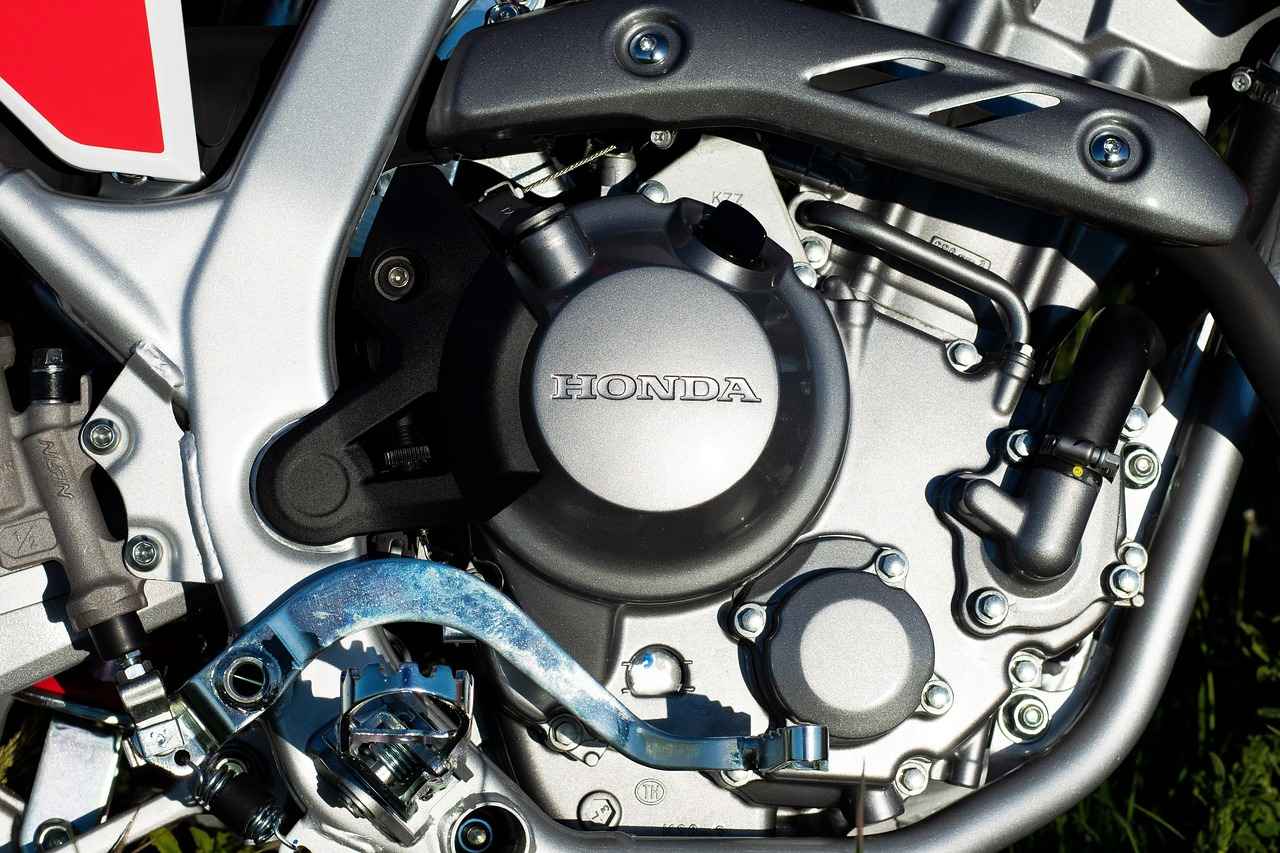
What Are Common Issues Honda Accord Owners Face?
The Honda Accord is widely recognized for its dependability and performance, making it a favorite among car enthusiasts and everyday drivers alike. However, like any vehicle, it is not immune to issues that may arise as it ages. Understanding these common problems can help owners take proactive measures to maintain their vehicle’s performance and longevity.
While Honda Accords are known for their reliability, some common issues can arise over time. Being aware of these can help you address them proactively. Here are some of the most frequently reported issues:
- Transmission Problems: Some Honda Accord models may experience transmission issues as they age. Symptoms can include slipping gears, delayed shifting, or unusual noises. Regular transmission fluid changes and inspections can help prevent serious problems.
- Electrical System Failures: Electrical issues, such as battery failures and wiring problems, can occur in older models. Keeping the electrical system in check can help avoid unexpected breakdowns. Regularly inspecting battery connections and replacing worn-out components can mitigate these risks.
- Suspension Wear: Over time, the suspension components may wear out, leading to a rough ride or handling issues. Owners should pay attention to any unusual noises or vibrations while driving, as these can be indicators of suspension problems.
- Brake System Issues: The brake system is crucial for safety, and some owners report issues with brake pads wearing out prematurely or brake fluid leaks. Regular inspections and timely replacements can ensure optimal braking performance.
- Oil Leaks: As Honda Accords age, oil leaks can become a concern. Regularly checking oil levels and monitoring for leaks can help maintain engine health and prevent more significant issues down the line.
- Fuel System Problems: Fuel injectors and fuel pumps can experience wear, leading to poor fuel efficiency or engine performance. Keeping the fuel system clean and using high-quality fuel can help mitigate these issues.
By staying informed about these common issues, Honda Accord owners can take preventive measures to keep their vehicles running smoothly. Regular maintenance and timely repairs are key to addressing these problems before they escalate.
Addressing common issues requires a combination of awareness, maintenance, and professional assistance. Here are some strategies:
- Regular Maintenance: Following the manufacturer’s maintenance schedule is crucial. This includes regular oil changes, brake inspections, and transmission fluid replacements.
- Stay Attentive: Pay attention to your vehicle’s performance. If you notice any changes, such as strange noises or warning lights, seek professional help promptly.
- Join Owner Communities: Engaging with other Honda Accord owners can provide valuable insights and tips on common issues and their solutions.
- Consult Professionals: When in doubt, consult a certified mechanic who specializes in Honda vehicles. They can diagnose issues accurately and recommend the best course of action.
By being proactive and informed, Honda Accord owners can significantly reduce the impact of these common issues. This not only enhances the driving experience but also contributes to the vehicle’s overall longevity.
Transmission Problems
Transmission problems can be a significant concern for Honda Accord owners, especially as their vehicles age. While Honda is renowned for its reliability, some models may experience issues with their transmissions over time. Understanding these potential problems can help owners take proactive measures to ensure their vehicles remain in optimal condition.
Transmission issues can manifest in various ways, from slipping gears to unusual noises. Here are some common problems that Honda Accord owners might face:
- Delayed Engagement: This occurs when there is a noticeable delay between shifting from park to drive or reverse, indicating potential transmission fluid issues.
- Slipping Gears: If the vehicle unexpectedly changes gears or loses power while accelerating, it may signify a failing transmission.
- Fluid Leaks: Puddles of red or brown fluid under the vehicle can indicate a leak, which must be addressed promptly to avoid further damage.
- Unusual Noises: Grinding or whining noises during gear shifts can indicate internal problems within the transmission.
One of the most effective ways to prevent serious transmission problems is through regular maintenance. Here are some essential practices:
- Regular Transmission Fluid Changes: Over time, transmission fluid can become contaminated and lose its effectiveness. Changing the fluid at recommended intervals can help maintain optimal performance.
- Routine Inspections: Having a qualified mechanic inspect the transmission system regularly can identify potential issues before they escalate.
- Check for Recalls: Some Honda Accord models may be subject to recalls for transmission-related issues. Staying informed about recalls can prevent future problems.
Being aware of the signs that your vehicle may need transmission service is crucial. Look out for:
- Warning Lights: If the check engine light or transmission warning light appears on the dashboard, it is essential to have the vehicle diagnosed as soon as possible.
- Poor Acceleration: If the vehicle struggles to accelerate or feels sluggish, it could indicate transmission problems.
- Burning Smell: A burning smell may indicate overheating transmission fluid, which can lead to severe damage if not addressed.
Addressing transmission issues early can save Honda Accord owners significant time and money. Ignoring warning signs can lead to:
- Increased Repair Costs: Minor issues can escalate into major problems, resulting in costly repairs or even a complete transmission replacement.
- Decreased Vehicle Value: A vehicle with known transmission issues may have a lower resale value, impacting your investment.
- Safety Risks: A malfunctioning transmission can affect vehicle control, posing safety risks for the driver and others on the road.
In summary, while transmission problems can be a concern for Honda Accord owners, staying vigilant and adhering to a regular maintenance schedule can significantly reduce the risk of severe issues. By understanding the common signs of transmission trouble and the importance of timely service, owners can ensure their Honda Accords remain reliable and efficient for many years to come.
Electrical System Failures
The electrical system of a vehicle plays a crucial role in ensuring its overall functionality and performance. For Honda Accord owners, particularly those with older models, understanding potential electrical system failures is essential for maintaining a reliable driving experience. Below, we delve into common electrical issues, their causes, and preventive measures to keep your Honda Accord in optimal condition.
As vehicles age, electrical components can wear out, leading to a variety of issues. Some of the most frequently reported electrical problems in older Honda Accords include:
- Battery Failures: Over time, batteries lose their ability to hold a charge, especially in extreme weather conditions. Regular testing and replacement can prevent unexpected breakdowns.
- Wiring Problems: Corroded or damaged wiring can lead to short circuits, affecting various electrical systems in the vehicle. Inspecting wiring for signs of wear is advisable.
- Faulty Alternators: The alternator is responsible for charging the battery and powering electrical systems. A failing alternator can lead to battery drain and electrical malfunctions.
- Malfunctioning Sensors: Sensors play a vital role in modern vehicles. Issues with sensors can trigger warning lights and affect performance.
Being proactive about your vehicle’s electrical health can save you time and money. Here are some signs that may indicate electrical issues:
- Dim or Flickering Lights: If your headlights or dashboard lights are dim or flickering, it may indicate a failing battery or alternator.
- Unresponsive Electronics: If power windows, locks, or the radio stop working, it could signal a wiring issue or a blown fuse.
- Warning Lights: Pay attention to warning lights on the dashboard, as they can indicate electrical system malfunctions.
To avoid electrical failures, consider the following preventive measures:
- Regular Inspections: Schedule routine inspections to check the battery, wiring, and electrical components.
- Battery Maintenance: Keep battery terminals clean and ensure a secure connection. Replace the battery every 3-5 years, depending on usage.
- Use Quality Parts: When replacing electrical components, opt for OEM or high-quality aftermarket parts to ensure reliability.
If you notice persistent electrical issues or warning lights, it’s crucial to seek professional help. A qualified mechanic can diagnose and address problems effectively, ensuring your Honda Accord remains safe and reliable.
Maintaining the electrical system of your Honda Accord is vital for its longevity and performance. By being aware of common issues, identifying signs early, and taking preventive measures, you can enjoy a smooth and trouble-free driving experience.
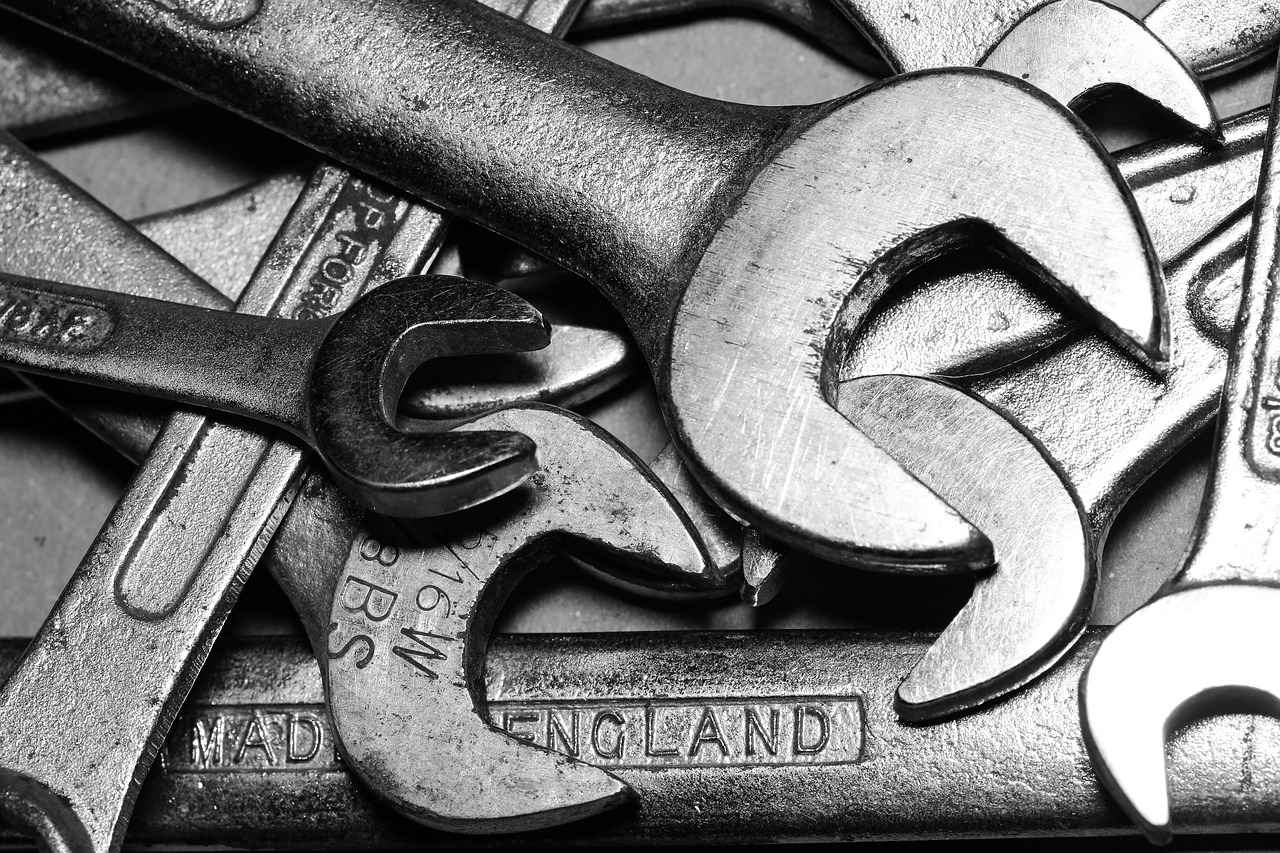
How Can You Enhance Your Honda Accord’s Resale Value?
When it comes to owning a Honda Accord, many drivers recognize that maintaining your vehicle is crucial not only for its performance but also for its long-term value. A well-maintained Honda Accord can serve you faithfully for many years, and it can also fetch a higher price when it’s time to sell or trade it in. This article delves into strategies to enhance your Honda Accord’s resale value and maximize your investment.
The resale value of a vehicle is a significant factor for many owners. A higher resale value means that you can recover more of your initial investment when you decide to sell. This can be particularly beneficial in helping you afford a new vehicle. By understanding how to maintain and enhance your Honda Accord, you can ensure it retains its value over time.
- Regular Maintenance: Keeping up with scheduled maintenance is essential. This includes oil changes, filter replacements, and brake inspections. Following the manufacturer’s maintenance schedule can significantly impact your vehicle’s resale value.
- Documentation: Keeping detailed records of all maintenance and repairs adds credibility when selling your car. Potential buyers appreciate knowing that the vehicle has been well cared for.
- Condition of the Vehicle: A clean, well-maintained exterior and interior can greatly enhance resale value. Regular washing, waxing, and detailing can keep your Honda Accord looking new.
Investing in upgrades can also positively influence your Honda Accord’s market appeal. Some key upgrades include:
- New Tires: High-quality tires not only improve safety but also enhance the overall driving experience, making your vehicle more attractive to potential buyers.
- Infotainment System: Upgrading to a modern infotainment system can appeal to tech-savvy buyers, adding value to your vehicle.
- Safety Features: Installing advanced safety features, such as backup cameras or lane departure warnings, can make your vehicle more appealing in the used car market.
The Honda Accord has a longstanding reputation for reliability and longevity. This reputation plays a significant role in its resale value. When potential buyers see that a vehicle is known for its durability, they are often willing to pay a premium. Some factors that contribute to this reputation include:
- Reliability Ratings: Organizations like J.D. Power and Consumer Reports consistently rank Honda Accord highly for reliability, which can enhance its resale value.
- Owner Satisfaction: Many Honda Accord owners report high levels of satisfaction, which can translate into a strong demand for used models, further boosting resale values.
Market demand can fluctuate based on various factors, including fuel prices and economic conditions. Understanding these trends can help you decide the best time to sell your Honda Accord. For instance, if fuel prices are high, fuel-efficient models like the Accord may see an uptick in demand, allowing you to sell at a better price.
When it’s time to sell your Honda Accord, taking the right steps can enhance its appeal:
- Clean and Detail: Ensure the car is thoroughly cleaned, both inside and out. A detailed vehicle gives the impression of being well cared for.
- Minor Repairs: Fix any minor issues, such as scratches or dents, before listing your car for sale. This can prevent potential buyers from being deterred by small imperfections.
- Set a Competitive Price: Research similar models in your area to set a fair and competitive price that reflects your vehicle’s condition and features.
In summary, maintaining your Honda Accord through regular service, keeping detailed records, and making thoughtful upgrades can significantly enhance its resale value. By understanding the factors that influence resale value, you can make informed decisions that maximize your investment.
Keeping Detailed Maintenance Records
When it comes to maintaining the value of your Honda Accord, one of the most important practices is . This practice not only helps you stay organized but also provides potential buyers with the confidence they need to make a purchase. In this section, we will explore the significance of documenting maintenance and repairs, and how it can positively impact your vehicle’s resale value.
Having a comprehensive record of all maintenance and repairs performed on your Honda Accord serves several purposes:
- Builds Trust: When potential buyers see a well-documented history of maintenance, they are more likely to trust the condition of the vehicle.
- Reflects Responsibility: Detailed records demonstrate that you have taken your vehicle’s maintenance seriously, indicating that it has been cared for properly.
- Facilitates Negotiation: A well-documented maintenance history can give you leverage during negotiations, as buyers may be willing to pay a premium for a vehicle that has been well cared for.
To ensure that your maintenance records are comprehensive, consider including the following:
- Date of Service: Always note the date when any maintenance or repair was performed.
- Description of Service: Clearly describe what was done, whether it was an oil change, brake replacement, or tire rotation.
- Service Provider Information: Include the name of the mechanic or dealership that performed the service, along with their contact information.
- Receipts and Invoices: Keep all receipts and invoices as proof of the work done. This adds credibility to your records.
- Future Recommendations: If the service provider recommends future work, note that as well. This can help you plan ahead and keep your vehicle in optimal condition.
Organizing your maintenance records can be done in various ways. Here are a few effective methods:
- Physical Binder: Use a binder to store printed receipts and documents. Organize them chronologically for easy access.
- Digital Records: Consider using apps or software designed for vehicle maintenance tracking. These tools can help you log services and set reminders for future maintenance.
- Spreadsheets: If you prefer a DIY approach, create a spreadsheet to track your maintenance history. This allows for easy sorting and filtering of information.
When it comes time to sell your Honda Accord, having detailed maintenance records can significantly enhance its resale value. Buyers are often willing to pay more for a vehicle that has a clear history of care. A well-documented record can also reduce the time it takes to sell your vehicle, as potential buyers will feel more secure in their investment.
In summary, keeping detailed maintenance records is an essential practice for any Honda Accord owner. Not only does it help maintain the vehicle’s condition, but it also plays a crucial role in preserving and enhancing its resale value. By following the tips outlined in this article, you can ensure that your records are comprehensive, organized, and beneficial for future transactions.
Upgrading Key Components
Investing in quality upgrades for your Honda Accord can significantly enhance its appeal to potential buyers while also increasing its overall market value. One of the most effective ways to achieve this is by focusing on critical components that make a noticeable difference in both performance and aesthetics.
- New Tires: The condition of your tires is crucial for safety and performance. High-quality tires not only improve handling and fuel efficiency but also provide a smoother ride. When prospective buyers see that the tires are new or in excellent condition, they are more likely to feel confident about the vehicle’s overall maintenance.
- Sound System Upgrades: A modern sound system can transform the driving experience. By investing in a high-quality audio setup, you can appeal to younger buyers or those who value entertainment and connectivity. Features such as Bluetooth compatibility and enhanced speaker systems are attractive selling points.
- Interior Enhancements: Upgrading the interior with new seat covers, floor mats, or even a fresh coat of paint can make your Honda Accord feel more luxurious. Buyers often appreciate a well-maintained and aesthetically pleasing interior, which can lead to higher offers.
- Performance Upgrades: Enhancing the engine or suspension can also be beneficial. Modifications that improve acceleration, handling, and fuel efficiency can attract buyers looking for a sportier driving experience.
When considering these upgrades, it’s essential to keep in mind the potential return on investment. While some modifications may require a significant upfront cost, they can lead to a higher resale value down the line. Research indicates that vehicles with upgraded components tend to sell faster and at a premium compared to their less-equipped counterparts.
Moreover, documenting these upgrades in your maintenance records can provide transparency to potential buyers. Showing that you have invested time and money into enhancing the vehicle can build trust and justify a higher asking price.
In summary, making strategic upgrades to key components of your Honda Accord can not only improve the driving experience but also enhance its marketability. By focusing on aspects such as tires, sound systems, and interior quality, you can create a vehicle that stands out in a competitive market. This proactive approach can ultimately lead to a more satisfying sale and a greater return on your investment.
Frequently Asked Questions
- How long can I expect my Honda Accord to last?
The average lifespan of a Honda Accord is around 200,000 miles or more, depending on factors like maintenance and driving habits.
- What maintenance practices can help extend the life of my Honda Accord?
Regular oil changes, timely repairs, and routine inspections are key. Following the manufacturer’s maintenance schedule can significantly enhance your vehicle’s longevity.
- How do driving habits affect my Honda Accord’s lifespan?
Aggressive driving, frequent short trips, and carrying heavy loads can increase wear and tear. Adopting smoother driving habits can make a big difference in how long your Accord lasts.
- What common issues should I watch for in older Honda Accords?
Some common problems include transmission issues and electrical system failures. Keeping an eye on these areas can help you address them before they become serious.
- How can I improve my Honda Accord’s resale value?
Maintaining detailed records of all maintenance and repairs, as well as investing in quality upgrades, can significantly boost your vehicle’s appeal and market value.
